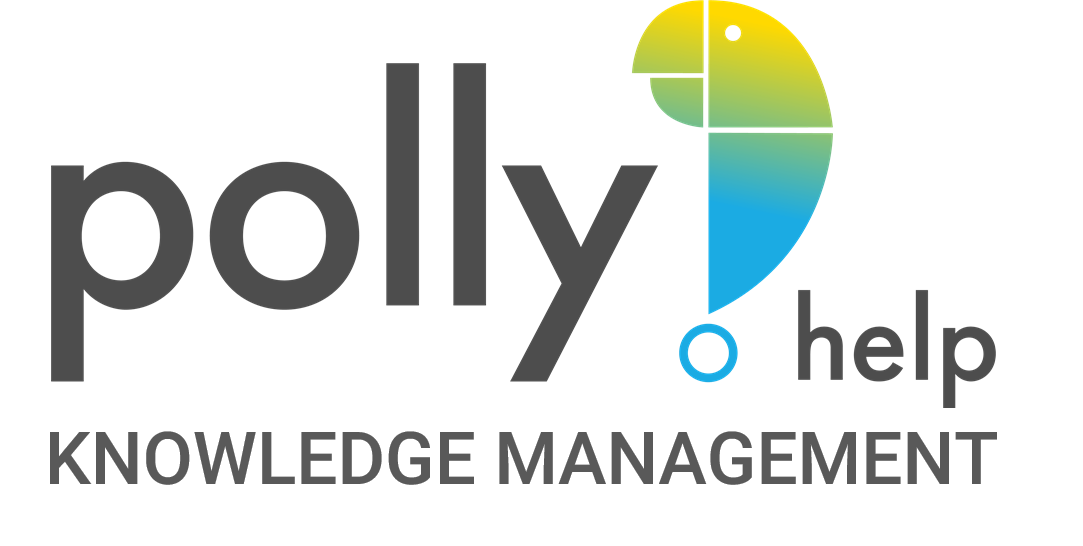Knowledge Management Software (KMS) is a critical component of modern businesses, facilitating a systematic approach to collecting, managing, and distributing critical information. As the digital landscape continues to evolve, it is crucial for enterprises to adopt powerful KMS to structure and streamline their organizational intellectual assets. With the help of knowledge base software, knowledge sharing platforms, and knowledge repository systems, businesses can transform how they handle company-wide knowledge, fostering a culture of collaboration, agility, and innovation. In this article, we explore the pivotal role of KMS in enterprise knowledge management.
Key Takeaways
- Knowledge Management Software centralizes and organizes vital business information, significantly improving work performance and decision-making processes.
- KMS serves as an enabler for innovation, promoting a culture of continuous improvement and collaboration across teams.
- The adoption of KMS plays a significant role in facilitating remote work environments, enabling teams to stay connected and access crucial documents or data.
- Utilizing KMS systems helps to preserve and harness the collective knowledge of an organization, leading to better operational outcomes and informed business strategies.
- Knowledge Management Software plays a pivotal role in fostering employee development, promoting continuous learning, and ensuring that all employees stay up-to-date with evolving industry standards.
Understanding Knowledge Management in Modern Enterprises
Knowledge Management (KM), as refined by Gartner, is a systematic approach to managing an enterprise’s intellectual assets. It supports the creation, capture, and use of knowledge, and is crucial due to the dispersed nature of knowledge within organizations across various platforms and channels. Strategic emphasis on KM can ensure retention of this collective knowledge, which has the capacity to refine business practices and add significant value. As such, it is essential to have a KM system in place that enables this strategic consolidation and sharing.
In this section, we will define knowledge management, discuss the dispersed nature of corporate knowledge, and highlight the strategic value of knowledge in organizations.
Defining Knowledge Management
Knowledge management encompasses the strategies, processes, and technologies that enable organizations to create, capture, and use collective knowledge. By leveraging document management systems, knowledge organization systems, and knowledge discovery tools, KM systems empower enterprises to streamline their knowledge dissemination and improve collaboration among employees. As a result, organizations can harness intellectual capital more effectively and facilitate informed decision-making.
The Dispersed Nature of Corporate Knowledge
In modern enterprises, information and knowledge exist in various formats across diverse platforms and mediums. From emails and chat records to presentations and shared documents, knowledge is scattered within and beyond the confines of an organization’s internal systems. This dispersed nature can lead to inefficient information retrieval, communication breakdowns, and an overall loss of valuable insights. Thus, recognizing the scattered nature of corporate knowledge is the first step towards designing an effective KM system.
Strategic Value of Knowledge in Organizations
Collective knowledge holds significant strategic value for enterprises, as it influences decision-making processes, fosters innovation, and drives overall business performance. Integrating document management systems, knowledge organization systems, and knowledge discovery tools into a centralized KM system can unlock the full potential of an organization’s intellectual assets. Such a system helps retain collective knowledge and empowers employees and stakeholders to access, share, and build upon existing knowledge, thereby maximizing strategic value and driving the organization’s growth.
| Key Elements of KM Systems | Functions |
|---|---|
| Document Management System | Streamlines the creation, storage, retrieval, and management of digital documents and files. |
| Knowledge Organization System | Facilitates the classification, organization, and retrieval of information within the enterprise. |
| Knowledge Discovery Tools | Enables the identification, extraction, and analysis of patterns, relationships, and trends in data. |
The Role of Knowledge Management Software in Streamlining Operations
Knowledge management solutions, such as knowledge capture software, serve as instrumental assets in unifying and simplifying business operations. Centralizing access to information through a unified platform eradicates inefficiencies stemming from fragmented data segments and silos, and also enhances collaboration amongst employees.
Enterprise-wide accessibility to best practices, past project knowledge, and other critical information is also facilitated by knowledge management software. Such a system significantly improves work performance and decision-making processes, enabling organizations to drive results and achieve their strategic goals efficiently.
- Centralized access to information: Knowledge management software gathers data from various sources and consolidates it under a single platform, which facilitates ease of access and readability for employees.
- Elimination of silos and fragmentation: By organizing information into a structured and searchable repository, knowledge management solutions eliminate unproductive silos and fragmented data sets, maximizing accessibility and productivity.
- Streamlined collaboration: The software fosters a collaborative work environment, which promotes continuous improvement and innovation across teams. As a result, organizations are better equipped to address challenges, solve problems, and capitalize on new opportunities.
Ultimately, the integration of knowledge management software into an organization’s operations can lead to enhanced performance and efficiency. By leveraging this innovative technology, businesses can maintain a competitive edge and ensure their success in a rapidly evolving marketplace.
Knowledge Management Software as a Catalyst for Innovation
Knowledge management software plays a crucial role in driving innovation within organizations by creating a conducive environment for idea generation, collaboration, and knowledge sharing. By capturing and consolidating both discrete and aggregate organizational knowledge, knowledge management systems enable businesses to leverage their intellectual capital to outpace competition and propel the organization towards its strategic goals.
Fostering a Culture of Continuous Improvement
Implementing a knowledge management system fosters a culture of continuous improvement within organizations by promoting a collaborative environment. Knowledge repository systems enable employees to learn from their peers, identify gaps in their understanding, and build upon existing ideas. As employees engage in a process of knowledge sharing and learning, they are empowered to develop innovative solutions that address complex problems and enhance overall organizational performance.
Supporting Spontaneous and Planned Innovation
Enterprise knowledge management systems serve as enablers for both spontaneous and planned innovation. They provide the necessary tools for capturing, organizing, and sharing organizational knowledge, empowering employees and teams to tap into a wealth of information and expertise. By having easy access to the collective experience and insights of their colleagues, employees can uncover new ways to overcome challenges and develop innovative solutions that align with the organization’s strategic objectives.
Knowledge Management Software and Remote Work Enablement
The adaptation of Knowledge Management Software is particularly influential in facilitating remote work environments. It empowers teams to stay connected and access necessary documents or data, regardless of their location. By implementing knowledge management practices and tools, the remote workforce can maintain productivity, collaborate effectively using team collaboration tools, and achieve a high level of job satisfaction and well-being from the ability to work flexibly.
A knowledge sharing platform serves as the backbone for remote work by simplifying employees’ access to critical information and ensuring seamless collaboration, even when team members are spread across different geographic locations. Advanced knowledge base software provides advanced search options, real-time updates, and secure cloud-based storage, making knowledge retrieval and sharing effortless.
Considering the rise of remote work, enterprise knowledge management strategies can no longer remain tied to a physical office. Embracing the shift towards remote teams and integrating knowledge management software within the enterprise infrastructure is fundamental for business agility and uninterrupted productivity. This integration ensures that organizations stay competitive in the rapidly evolving digital landscape.
The fast adoption of knowledge management software for remote work proves beneficial not only for the employees’ well-being but also for the overall success of the organization. By fostering a culture of connectedness, collaboration, and effective information management, businesses can continue to innovate, capture new opportunities, and withstand challenges in a remote work context.
Enhanced Decision Making Through Knowledge Management Tools
Knowledge management tools play a crucial role in optimizing decision-making processes within organizations. By enabling a comprehensive analysis of data and accumulating insights from employees’ experiences, these tools facilitate improved decision-making capabilities, leading to better operational outcomes and informed business strategies.
Improving Intuitive and Data-Driven Decisions
By incorporating knowledge base software and knowledge management solutions, organizations can enhance both intuitive and data-driven decision-making. Decision-makers can access an extensive repository of organizational knowledge and data, making it easier to identify trends, monitor performance, and discover insights that drive informed decisions. This streamlined access to information not only accelerates the decision-making process but also ensures greater accuracy and more efficient allocation of resources.
Maximizing the Utilization of Internal Expertise
Knowledge management tools help organizations harness the power of internal expertise at various levels. These tools allow leaders to identify subject matter experts within their workforce and facilitate the smooth flow of knowledge across departments and hierarchies. By enabling employees to effectively share their expertise, organizations can create a culture of collaboration and mutual growth, thereby fostering innovative problem-solving and maximizing the potential of their human capital.
Some of the ways knowledge management tools can contribute to better decision-making include:
- Streamlining access to vital information
- Reducing information overload
- Empowering employees to learn from one another
- Promoting a data-driven culture
Ultimately, the adoption of knowledge management tools amplifies the role of data and insights in driving business decisions. Organizations that leverage these tools effectively can create a competitive advantage by fostering a culture of informed decision-making and strategic thinking.
The Crucial Role of Knowledge Management Software in Employee Development
Knowledge Management Software is essential in fostering employee development by providing a platform for continuous learning and knowledge sharing. With the help of knowledge capture software and a comprehensive knowledge organization system, employees can easily access pertinent information and collaborate effectively across teams. This drives the upskilling of the workforce and ensures that their expertise remains updated with evolving industry standards and technological advancements.
Furthermore, by centralizing access to knowledge base articles and training materials, Knowledge Management Software underpins a culture of ongoing employee education and professional growth. This fosters a learning organization that encourages employees to consistently enhance their skills and competencies, bolstering the business’s overall capabilities and adaptability. Below are some key benefits of incorporating Knowledge Management Software in employee development:
- Employees can instantly locate and access relevant information, making them more efficient in their respective roles.
- Centralized knowledge promotes seamless communication and knowledge sharing among teams, leading to more efficient decision-making and problem-solving.
- Continuous learning opportunities provided by a knowledge management system help employees stay updated on industry trends and best practices.
- An organization-wide culture of knowledge sharing and collaboration increases employee engagement, satisfaction, and retention.
In summary, Knowledge Management Software plays a crucial role in employee development by serving as a centralized platform for knowledge sharing and continuous learning. Organizations that invest in implementing such software can reap the benefits of an upskilled workforce, increased efficiency, and a culture of ongoing education and professional growth.
Knowledge Management Software: A Strategy for Retention and Competitiveness
Knowledge Management Software (KMS) is a crucial component in any organization’s strategy to retain its valuable intellectual capital and strengthen its competitive position. By providing streamlined access to company knowledge, businesses can effectively protect and exploit their information assets, driving success and innovation. Key advantages of employing a KMS include safeguarding intellectual capital and standardizing knowledge access and sharing practices across the organization.
Protecting Intellectual Capital
Intellectual capital is a hidden treasure within organizations, consisting of the collective knowledge, skills, and experiences of employees. A robust document management system coupled with a knowledge management system ensures that this valuable asset is protected. Companies in every industry can benefit from harnessing their collective knowledge through KMS, which prevents the loss of critical information and creates a centralized repository that employees can access swiftly, fostering collaboration and informed decision-making.
Standardizing Access and Sharing of Knowledge
In addition to preserving intellectual capital, KMS is instrumental in streamlining the access and sharing of knowledge throughout the organization. With a versatile knowledge base software in place, businesses can standardize procedures and practices, ensuring that information is quickly retrievable and consistently used by teams. This standardization eliminates knowledge silos and drives efficiency, ultimately contributing to increased productivity and a better-informed workforce.
In conclusion, the implementation of Knowledge Management Software is a strategic move that organizations should consider to maintain their competitive edge. By facilitating the protection of intellectual capital and ensuring standardized knowledge access and sharing, KMS has the potential to boost the overall performance and innovativeness of businesses in the long term.
The Functionality of Knowledge Capture Software
Knowledge capture software serves as an essential component for ensuring knowledge transfer and retention within organizations. It manages to address potential knowledge drain issues, which are often the result of employee turnover. This software primarily functions by preserving intangible assets like tacit knowledge that typically resides with individuals.
Agents of Knowledge Transfer and Retention
Knowledge capture software is designed to assist organizations in collecting and collating valuable insights and practices within a centralized knowledge repository. By doing so, it provides an accessible platform that encourages individuals to share their expertise, promoting seamless knowledge transfer. Knowledge management solutions typically offer various tools for capturing tacit knowledge, such as audio and video recording features, note-taking capabilities, and advanced search functions to facilitate the easy retrieval of information.
Reduction of Knowledge Drain from Employee Turnover
Employee turnover is an inevitable part of any organization’s lifecycle, and, unfortunately, it can often lead to the loss of essential knowledge and skills. Implementing knowledge capture software effectively minimizes this loss by systematically collecting, storing, and making accessible the crucial knowledge that departing employees have acquired. This practice ensures that organizations retain valuable insights and experiences, enabling smooth knowledge transfer to incoming employees, thereby maintaining the organization’s intellectual capital and overall productivity.
The Importance of Knowledge Management Software in Corporate Learning
Knowledge Management Software plays a pivotal role in molding an organization into a learning entity where knowledge sharing is pervasive. The integration of Learning Management Systems (LMS) and other knowledge-oriented technologies supports a structured and streamlined approach to corporate learning. It emphasizes collaborative learning by making accessible knowledge sharing tools that connect individuals and teams, fostering a knowledge-rich work environment conducive to innovation and continuous improvement.
Building a Learning Organization
Creating a learning organization involves implementing systems and practices that facilitate the acquisition, retention, and dissemination of knowledge. Learning management systems are crucial in this regard, as they enable the creation and management of courses, training materials, and other educational resources that employees can access as needed. Integrating LMS with Knowledge Management Software ensures seamless access to relevant knowledge that can enhance the efficiency and effectiveness of corporate training programs.
Encouraging Knowledge Sharing Across Teams
A knowledge sharing platform is essential when creating an environment that fosters collaboration and knowledge exchange. With the help of Knowledge Management Software, employees can quickly locate relevant information and communicate with other team members, preventing knowledge silos and promoting a sense of unity. By streamlining access to shared knowledge, these platforms empower employees to learn from one another, tapping into the organization’s collective expertise to drive innovation and improvement.
Knowledge Management Software also offers integrations with popular workplace collaboration tools, further expanding opportunities for knowledge sharing. Enhancing collaborative capabilities of project management and communication platforms encourages employees to openly contribute ideas, share insights, and work together to solve problems.
In conclusion, Knowledge Management Software is crucial for creating a learning organization and fostering a culture of knowledge sharing and collaboration. By integrating learning management systems with tools that facilitate knowledge sharing, organizations can harness the power of collective knowledge to stay ahead in the competitive landscape.
Conclusion
In today’s fast-paced business environment, enterprise knowledge management is the key to unlocking a company’s full potential. With the aid of knowledge base software and knowledge sharing platforms, organizations equip themselves with the tools necessary to achieve higher operational efficiency, boosted innovation, and a strategic competitive advantage. It is crucial that businesses embrace a comprehensive approach to knowledge management, implementing robust systems while fostering a culture of collaboration and shared insights.
Companies looking to take their knowledge management capabilities to new heights should consider adopting modern solutions like Polly.help. This innovative software offers a comprehensive and streamlined path to realizing the immense benefits of enterprise knowledge management. By utilizing such cutting-edge technology, businesses can harness the collective knowledge of their workforce and propel themselves toward continued success.
In conclusion, the effective implementation and usage of knowledge management software are indispensable components of a thriving organization. As the landscape of business continues to evolve, companies that prioritize knowledge sharing and adapt to the challenges of the modern digital age will thrive in gaining that vital competitive edge.
FAQ
What is Knowledge Management Software?
Knowledge Management Software (KMS) is a technology solution that helps organizations collect, manage, and distribute knowledge. It is used to house a diverse range of informational assets including internal emails, chat records, content management systems, presentation decks, sales contracts, FAQs, onboarding materials, customer support data, and the personal expertise of employees. It streamlines business operations and facilitates a competitive edge through agility and innovation.
How does Knowledge Management Software support remote work?
Knowledge Management Software is essential for facilitating remote work environments by allowing employees to access necessary documents and data, regardless of their location. With such software in place, remote workforces can maintain productivity, collaborate effectively using team collaboration tools, and achieve a high level of job satisfaction and well-being from the ability to work flexibly.
How does Knowledge Management Software enhance decision making?
Knowledge Management tools allow for in-depth analysis of comprehensive data and accumulated insights from employees’ experiences. This improves decision-making capabilities and ensures that decisions are made using a rich repository of internal expertise, leading to better operational outcomes and informed business strategies.
How does Knowledge Capture Software contribute to retaining corporate knowledge?
Knowledge Capture Software helps address the challenges of potential knowledge drain due to employee turnover by preserving tacit knowledge and making it accessible for future reference. This reduces the loss of valuable insights and practices when employees depart.
How does Knowledge Management Software foster employee development?
Knowledge Management Software provides a platform for continuous learning and knowledge sharing, helping upskill the workforce and maintaining the currency of their expertise with respect to evolving industry standards and technological advancements. By centralizing access to knowledge base articles and training materials, it underpins a culture of ongoing employee education and professional growth.
How does Knowledge Management Software play a role in corporate learning?
Knowledge Management Software is instrumental in molding an organization into a learning entity where knowledge sharing is pervasive. The integration of Learning Management Systems (LMS) and other knowledge-oriented technologies supports a structured and streamlined approach to corporate learning, emphasizing collaborative learning by making accessible knowledge sharing tools that connect individuals and teams.








